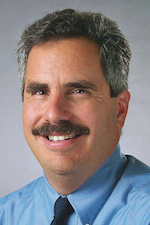Mathieu named director of Wisconsin Center for Education Research
Robert Mathieu, a UW–Madison professor of astronomy and an international leader in advancing science, technology, engineering and mathematics (STEM) higher education, has been named director of the Wisconsin Center for Education Research (WCER), UW–Madison School of Education Dean Julie Underwood announced April 8.

Robert Mathieu
Underwood says Mathieu was chosen for the position due to his experience and commitment to shared leadership on campus, his contributions to ensuring our nation’s future college STEM faculty members are prepared to be effective teachers, and his vision for WCER’s future.
“I think he will take WCER from its current status as one of the most productive education research centers in the world and help it move to even greater heights by looking at new ways of structuring the center, targeting new lines of research, and keeping a focus on impact,” says Underwood.
WCER is one of the oldest and largest education research centers in the world. It is part of the UW–Madison School of Education and serves researchers across the entire campus. Founded in 1964, WCER today is home to some 500 employees and generates $60 million in annual grant awards and services. Those within the center are engaged in more than 100 projects spanning the full range of education research.
Mathieu was appointed interim director of WCER in August 2013. He replaced Adam Gamoran, who left the university after nine years of directing WCER to become president of the William T. Grant Foundation.
“The importance of education research has never been greater,” says Mathieu. “It is being called upon to realize the opportunities and solve the grand challenges of our city, state, nation and world. It is a privilege to work with my talented colleagues in WCER, the School of Education and across campus to achieve our shared goals in student learning and success, and to assure the continued recognition of UW–Madison as a pre-eminent center for education research.”
Among WCER’s current areas of focus is establishing equitable outcomes and inclusion in education, as spurred by the work of the Minority Student Achievement Network (MSAN), the Wisconsin Equity and Inclusion Laboratory (Wei LAB) and the Wisconsin HOPE Lab. The rapidly growing WIDA provides services and materials for educators of English language learners in 37 states and 50 countries.
“The importance of education research has never been greater. It is being called upon to realize the opportunities and solve the grand challenges of our city, state, nation and world. ”
Robert Mathieu
“Most importantly, the center provides the School of Education a vehicle to make a difference in the world through groundbreaking basic research and crucial translational work,” says Underwood.
Mathieu brings a unique perspective to his role as director of WCER. A member of UW–Madison’s Department of Astronomy faculty since 1987, he will retain his appointment as a Vilas Distinguished Achievement Professor and continue research into the dynamics of star clusters, the evolution of stars and binary-star populations.
Mathieu has led a number of research projects at WCER, including the Center for the Integration of Research, Teaching, and Learning (CIRTL) for the past 12 years. CIRTL has prepared future STEM faculty — graduate students and postdoctoral researchers — and current faculty to become more effective as teachers and leaders of national STEM higher education. The CIRTL Network now includes 22 major research universities, including UW–Madison’s own Delta Program, which trains graduate students in teaching theory and practice in research, teaching and learning.
“The future faculty of the nation are today’s graduate students,” says Mathieu. “CIRTL is based on the idea that if we enhance their graduate preparation in teaching, we will advance undergraduate learning at every college and university in the nation. Of course, this is also a fundamental idea of WCER, that in advancing the knowledge and skills of all teachers we enhance the education of all.”
Mathieu was educated at Princeton University (A.B. 1978) and the University of California, Berkeley (Ph.D. 1983), after which he became a fellow of the Harvard-Smithsonian Center for Astrophysics. He has received a Presidential Young Investigator award, a Guggenheim Fellowship, a Kellett Award and is an AAAS Fellow. He has served as president of the board of directors of the WIYN Observatory and has chaired the University Committee of UW–Madison.
—Janet Kelly
Tags: campus administration, education, research




